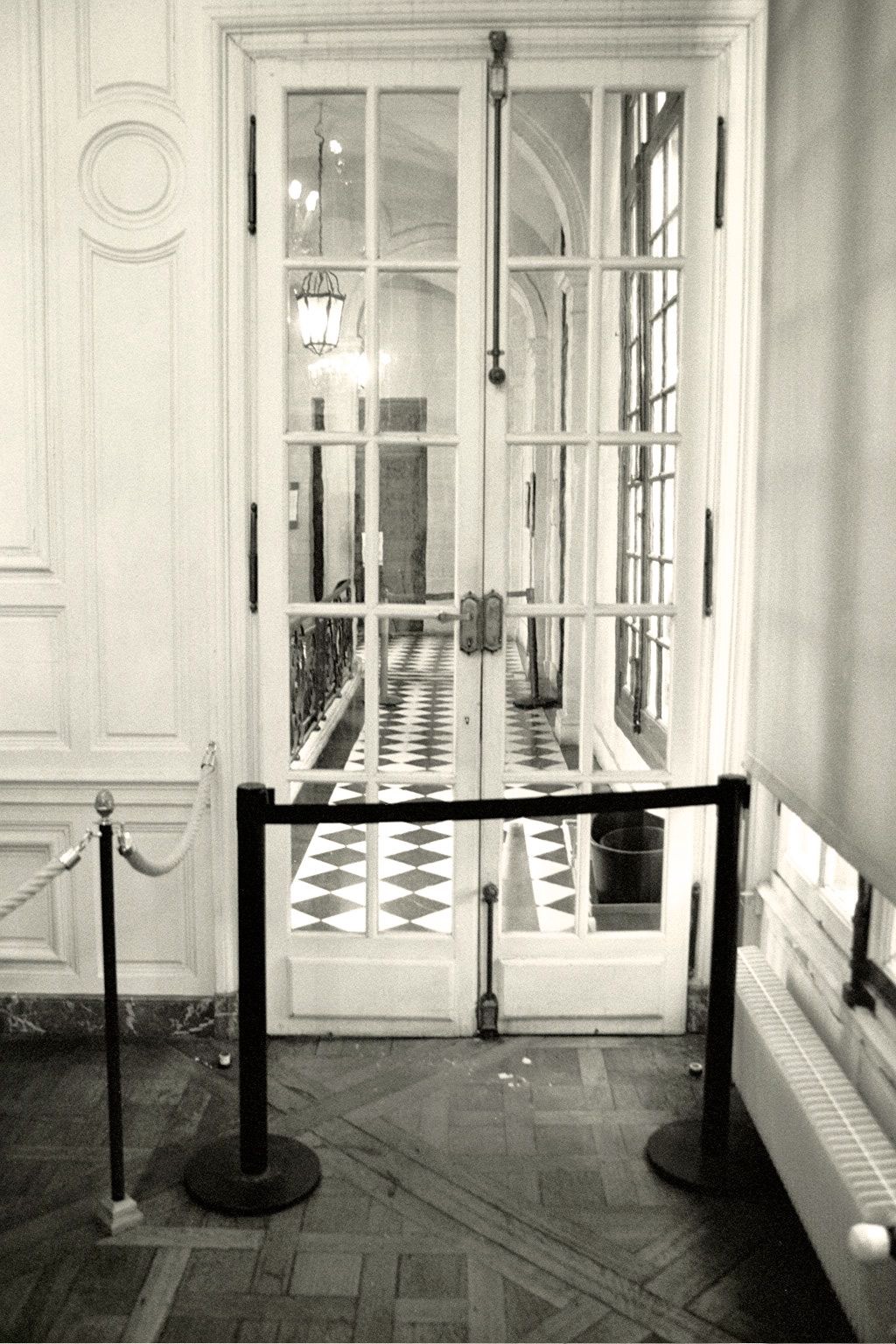Can the Academic Write? -- Part II
A conversation about style with David Wolf, commissioning editor at The Guardian Long Read.

Editors think that scholars are bad writers, and they say so often and rudely. Academics think that journalists are lazy thinkers, and they’re no more polite. Neither is right, I think, but the fields are so twain that nobody really bothers to think about the why or the how or the what next except super-intellectual magazines that nobody reads.
In the hope of addressing some of the issues that rub up at the academic/writerly tectonic ridge, I spoke with an old friend, David Wolf, my first-ever editor, who is now the commissioning editor of The Guardian’s Long Read section. Nobody’s ever pissed me off more on this topic, nor do I care so much about what anybody else has to say.
This is the second installment of our conversation: Part 1 is here.

Where does it all go wrong?
DW: One way that we’ve already discussed is just writing in the same old way: that won’t work. Another way, which is equally bad, is talking down to the reader.
JL: Forced casualness. Using the word, “basically.”
DW: Yeah, forced casualness. I hate that kind of thing. You’re never going to write well for a wider audience if you think it’s less worthwhile, less difficult than doing the academic stuff. It’s very hard in a different way.
You’re never going to write well for a wider audience if you think it’s less worthwhile, less difficult than doing the academic stuff.
JL: When I first started to write for a non-academic audience, the first thing I tried to figure out was how to be less formal. I threw in stupid casual asides at first, and it’s unbearable to read.
DW: There is also the related danger of coziness — the “let’s make this less scary” kind of coziness is horrible. That’s a classic mistake of the academic writer. Though they have such good material!
JL: That’s kind of what this whole column is about: that researchers do work that is secretly full of narrative joy.
DW: Yep, I agree. I think academics are sitting on absolutely tons of great stories. I’m not saying that every story from the world of academic research is going to be as big as some magazine story about porn and kidnappings, but it would be really exciting if more of these stories were told — and not just by journalists delving into the world of academia (though I really love those Lingua Franca-style stories). Of course, it’s also important to recognize that there are already lots of academics who do really, really good writing for popular audiences.

Is there a politics of nonfiction style?
JL: I think that writing entertaining nonfiction is commonly thought of as a masculine mode.
DW: What kind of thing do you mean?
JL: New Journalism.
DW: Yeah, but New Journalism is so far from academia! Though Garry Wills is an interesting figure here because he’s slightly associated with the New Journalists (he was in the Tom Wolfe anthology), but he’s also a highly respected historian.
JL: I think that model of the male storyteller who is not quite attached to anything and who conjures a cool story out of a scene is anti-academic and masculine in its stakes.
DW: I’m not sure I totally understand or agree with what you’re saying. It’s definitely true that a lot of the New Journalism was quite self-consciously macho. But if you think about which writers from that era have had the most impact, Joan Didion is obviously one of them.
JL: I guess what I’m trying to say is that the anonymous voice telling a nonfiction story — if it’s not going to be academic with all the balanced perspectives or conventions that the form demands, so you instead opt for an omniscient invisible voice — it will always read male.
I guess what I’m trying to say is that the anonymous voice telling a nonfiction story…will always read male.
DW: That’s interesting, but what’s an example of the type of piece of writing that you’re thinking of there? To go back to Tom Wolfe, say — he’s the least anonymous voice in the world. There’s ego in every sentence.
JL: I don’t know. Maybe this is more of a feeling.
DW: It’s also that … I think very few people based in academia do that kind of “I went to the convention, here are my thoughts,” type of piece that you’re thinking of.
JL: Yeah. I don’t know.
DW: On the other hand, over the last few years women grad students have been doing a lot of the best writing that’s halfway between journalism and academia — mainly in places like The Nation, The Point, n+1. Moira Weigel is a good example of someone that’s done this really well. Hannah Rosefield! You! A bunch of other people. I think that’s an exciting thing, and that those are people who are really good models for academics who want to write for new audiences. Obviously they’re grad students, not tenured professors. But those are good people to emulate.
JL: Kristin Dombek has a PhD! There are quite a lot of secret PhD woman writers. Elif Batuman.
DW: I actually wouldn’t tell academics to emulate Elif Batuman’s writing because it’s too unique — if you tried, it’d just be shit.


Whose job is this?
JL: I think there are many grad students who wonder if nonfiction will be the thing that redeems their lives as intellectuals, and they have no idea how long it’s going to take to turn themselves into writers.
DW: You talked about the first time we worked together. I was probably harsh. It’s not just that we were friends. I think with some writers who are going to be fine with it, it’s probably helpful to be a bit more hardline at first in order to knock some bad habits out. Even just doing that exercise with people who wanted to write, they’d get a sense of whether it was something they really wanted to do.
JL: Hannah Rosefield and I have talked so much over the years about the experience of being edited by you, because she is also an academic, but was a writer before she went to get her PhD. Both Hannah and I enjoy the process of being edited more than writing academic papers, even though we’re so different.
DW: I think most editors — myself included — like to think that if you’re going hard on every line and arguing over every paragraph, you are showing the greatest respect for the writer and the reader — and also the subject. In a way, the job of the editor is to be the best reader, and (hopefully) loads of people are going to be reading this thing. I don’t know about you, but my experience of reading stuff a lot of the time is feeling unsatisfied, “Oh that was kind of dull or not as good as I was hoping.” Most of the time you’re just picking holes in everything you read. Hopefully we’ll fill in some of those holes, and when people read the piece we worked on — it will be better.

How does it make you feel?
JL: You started a master’s degree and you dropped out. Does that experience relate at all to the way you feel about academic writing and academic thought?
DW: Yeah. Definitely. I’ve done three academic subjects. French and philosophy as an undergraduate, then I did two months of history of political thought before dropping out to work at Prospect full time.
I think in the three fields that I’ve done a little bit of work in, historians are the best of the three as writers. Or, to be more precise, it’s more common to find scholarly writing by historians that could appeal to a non-academic audience. But that is obviously related to the nature of the field.
Philosophical writing is often very hard to read. A lot of that is to do with the nature of the subject, but it’s not just that — some of it is just being a bad writer. And of course you can be a great philosopher, like Kant, without also being a great writer. At Prospect, I would sometimes go to a historian or a smart journalist with some kind of philosophy background to write about a philosophy thing rather than getting a philosopher to do it, because I knew they would write about it better. I don’t want to be unfair to philosophers, though. There are plenty of philosophers who write extremely well for a wider audience, like Jonathan Ree and Amia Srinivasan, say, but I suspect it’s a rarer thing than in other fields.
One of the reasons that philosophers might have trouble writing for non-academics is because they want to do philosophy on the page. They want to do philosophy in the piece itself, whereas in most mainstream venues the piece itself actually just needs to describe the history and the context and that kind of thing.
One of the reasons that philosophers might have trouble writing for non-academics is because they want to do philosophy on the page.
JL: That would be doing history of philosophy, surely?
DW: Yeah I think that’s true. It’s striking when journalistic pieces about philosophy don’t read like that — say, John Searle’s New York Review of Books piece a couple of years ago about ‘what computers can’t know.’ When I read it I was struck by how much closer it was to the kind of philosophical writing you read as a student than most journalistic articles about philosophy. Most journalism isn’t that.
I’m not explaining this well, but good philosophy is fucking slow — and that’s the point. It’s thinking in slow motion. That is quite antithetical to what general readers generally want. Obviously, as an editor you want to produce challenging, surprising pieces that give readers something they don’t yet know they want — but you also have to meet the reader halfway, in most non-academic publications you can’t go too slow.
JL: What about somebody like Judith Butler, or even Derrida? They are big “I-statement” writers who, through performing feeling, are doing the equivalent of what you describe as performing philosophy on the page. Although people think of Butler and Derrida as bad writers, they’re brilliant at slowing down thought and slowing down feeling in order to get to some interesting structure that lies behind.
DW: They weren’t writing journalism when they were doing that. Those were their books, and that’s a different thing. But I think it’s an interesting point, because Derrida and Butler are great counterexamples to people who complain about “obscurity.” People do read them! They are influential beyond the academy in a way that even academics who write very clearly often aren’t. That’s a very interesting challenge.
We talked earlier about how in so much journalistic writing about academic style, there is an assumption that it’s obvious what good and bad writing is. I am really interested in that category of writers who write beautifully but not in a way that satisfies the usual criteria for good literary journalism.
There is an assumption that it’s obvious what good and bad writing is.
Stanley Cavell—he’s a beautiful writer, exactly what you’re talking about. He’s doing thinking on the page. He’s slowing thought. It’s good writing, but it’s in a completely different mode to the kind of thing I usually think of as good writing which is like…well, Janet Malcolm.
JL: Janet Malcolm.
DW: That’s basically my ideal of “good writing” — Janet Malcolm. Not that everyone should have her voice, but. . .
JL: No, it’s okay, I get it.
Josephine Livingstone is a writer and academic in New York.
